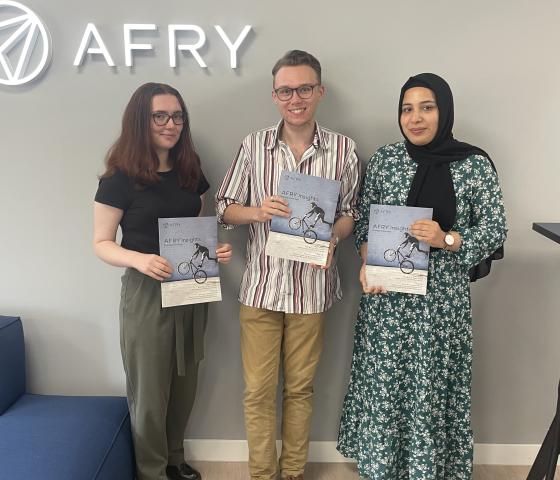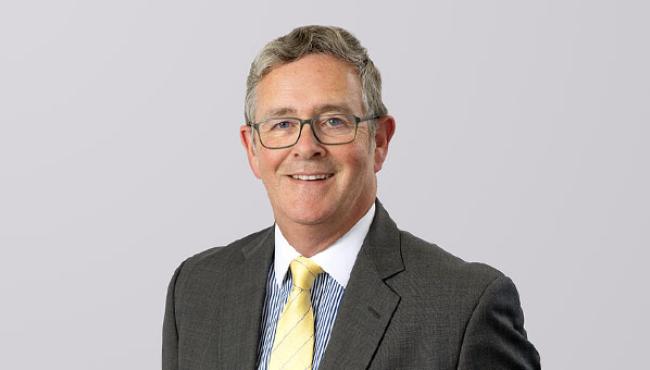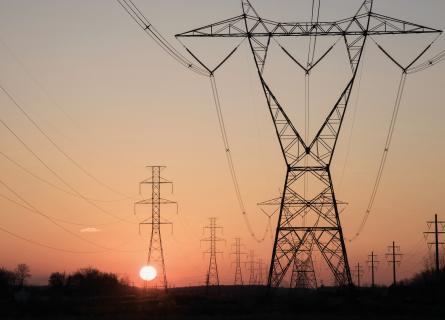
Next gen
In the pursuit of sustainable development and the energy transition, finding the right combination of professional experience and academia is an important enabler for the next generation of change-makers.
This delicate balance is precisely what AFRY fosters through its internship programme with the Social Mobility Foundation in the UK. The Social Mobility Foundation is a national charity whose vision is for a society where talent from all backgrounds is nurtured, harnessed, and rewarded. Through the programme, AFRY has the opportunity to welcome fresh ideas, challenge conventional thinking, and bring together a unique blend of talents that can lead to transformative outcomes.
AFRY Insights spoke with Anna Lappin, Josh McKenna, and Neha Yasin, interns at AFRY Management Consulting in the UK, who joined in 2022 and are returning in 2023. Read on to find out more about the connection between AFRY's vision of Making Future, the quest for balancing global energy security with decarbonisation, and the hopes and concerns of aspiring professionals who are striving to shape a better world.
What does AFRY’s vision, 'Making Future', mean to you?
Josh: “To me, AFRY's vision of 'Making Future' is a testament to the enthusiastic and knowledgeable individuals who make this company what it is. Based on my experience working at the Oxford office, whether devising new modelling approaches, providing policy insights, or implementing new social programs, it is inspiring to work with people who are always striving forward together. AFRY's commitment to innovation and progress is truly inspiring and makes me proud to play my part”
Anna: “Handling the energy transition is one of the biggest challenges that our society, and our planet, are facing. 'Making Future' reminds us to keep focusing on the long-term, collective effort to steer humanity towards a sustainable future.”
Neha: “As a young person in today’s society, I am often left worrying about what the future may look like for my generation, especially as climate change and global warming are becoming increasingly apparent. There are no doubt going to have to be huge changes in global energy usage within my own lifetime and AFRY’s vision will hopefully help make sure the right decisions are made for our future.”
The theme of balancing global energy security with decarbonisation lies at the heart of this edition of AFRY Insights magazine. What are your thoughts along that theme?
Anna: “Working at AFRY during such a turbulent time in terms of the supply of natural gas really highlighted to me the link between improving energy security and handling the energy transition.”
Neha: “I think this idea of balance is important, especially for areas of the world that are still developing their energy and electricity market. It would not be fair to hinder the process of development in these countries by implementing limited options from the get-go. While their energy security should be improved or maintained with future sustainability (“futureproofing”) in mind, decarbonisation would be most successfully done in areas that have the infrastructure to maintain satisfactory energy security alongside the changes.
Josh: “The challenges of energy security and decarbonisation are complex but they are more often aligned than not. I believe recent crises have only highlighted the necessity for policies that enable a decentralised, renewable energy system while addressing an increasingly inflexible supply and peak-prone demand. By optimising our installed capacity through smart grids and enhancing energy efficiency, we can reduce and distribute system demand, reducing the pressure on generation and thereby supporting both goals. Here in the UK, this could involve a more aggressive deployment of heat pumps in homes and the promotion and electrification of mass transportation.”
What are your hopes and concerns in relation to the energy transition?
Anna: “I hope that a successful handling of the energy transition will create a framework for truly global collaboration, not just across borders but across industries and communities. The costs and challenges associated with a transitional period could then be spread equitably, whilst developing a framework that would put us in a much better position to tackle future global challenges. My main concern is that the energy transition may not happen until it is too late to prevent the devastating effects of climate change, perhaps due to some people in positions of power prioritising their own short-term interests over long-term sustainable change.”
Neha: “I just hope that we, as a civilisation, are able to turn our climate situation back around and prevent a disastrous outcome for our entire globe. However, I am concerned that we have waited too long already to implement some changes and that the changes we are making just aren’t happening fast enough amongst the biggest players.”
Josh: “As we navigate the energy transition, it's crucial that we take a step back and reflect on our resource consumption and our connection with the environment and its inhabitants. While the pursuit of greater sustainability is essential, we cannot overlook the opportunity to tackle other ethical and societal issues that intersect with the climate crisis. It's essential to ensure that the energy transition is a just transition that benefits everyone.”
How would you describe your idea of a great place to work?
Neha: “A friendly and supportive work environment in which your ideas and contributions are recognised and allowed to thrive. A company whose goals align with your own ideals and morals.”
Anna: “I really like the idea of a ‘psychologically safe’ environment. This covers many of the aspects that I would value in an office culture: clear and honest communication, a robust code of ethical practice, encouraging a sustainable work-life balance, and so on. Combining this with rewarding, varied work and good training opportunities makes a great place to work!”
Josh: “For me, a truly fulfilling workplace is one where everyone feels appreciated and respected, as well as one with sense of camaraderie between folks both in our work together and as individuals. I value a workplace that promotes personal growth and development, and where our interests are encouraged and supported."
The Social Mobility Foundation unlocks potential, broadens horizons and creates opportunities with and for ambitious young people from lower socioeconomic backgrounds. It also influences employers to act on social mobility and campaigns on social mobility issues. By actively supporting the inclusion of individuals from diverse backgrounds, organisations like AFRY gain access to a range of perspectives that can drive innovation, enhance problem-solving capabilities, and foster a more inclusive corporate culture.
Josh has a physics background that has equipped him with a mathematical and physical intuition that has been essential to his work at AFRY, enabling him to analyse data critically, understanding its limitations, and draw meaningful conclusions.
Anna chose climate science as her optional module this year and the atmospheric science fits really well with the rest of her physics degree, while relating back to her work at AFRY on decarbonising European industry.
Neha found her time at AFRY allowed her to explore how her physics expertise could be applied in real-life problem solving, such as quantifying the physics impact of our energy use and the mechanisms of sustainable technologies.



